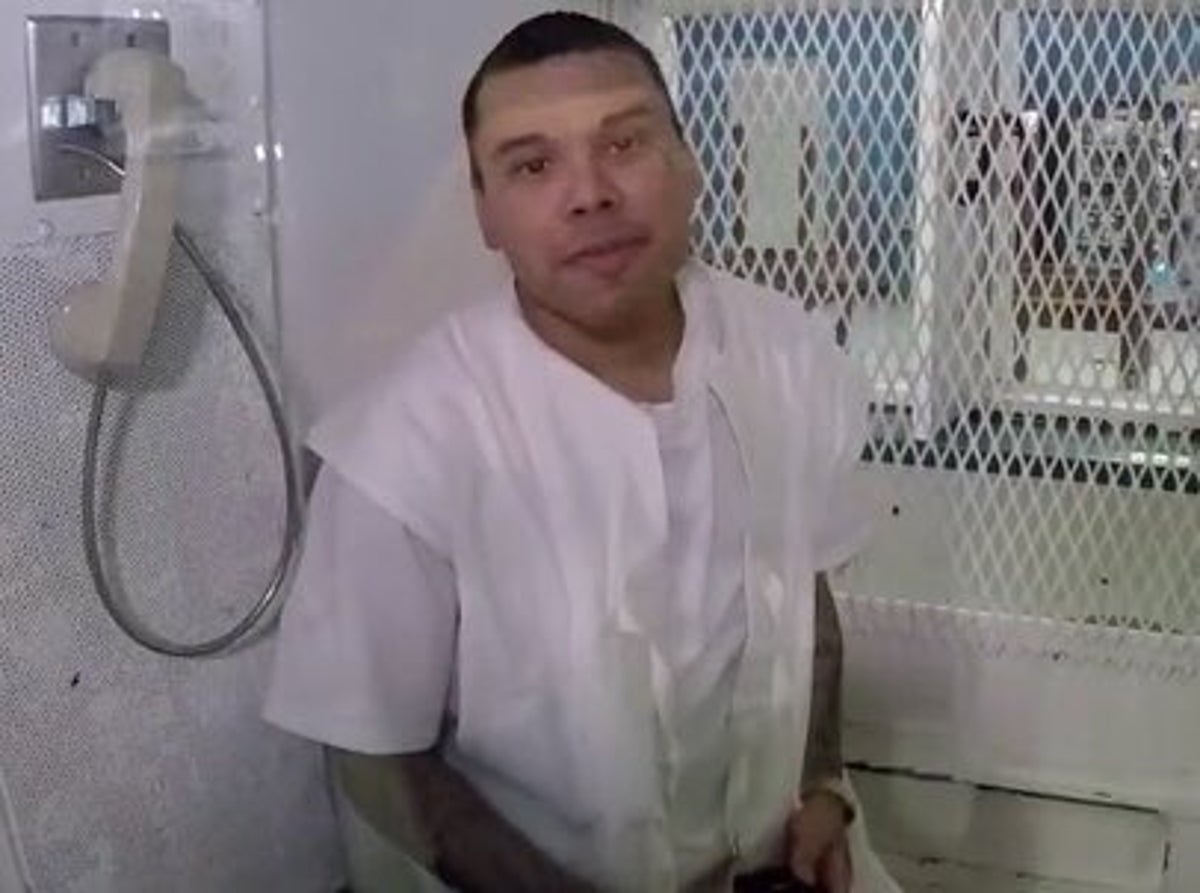
A man on death row in Texas has requested a stay of execution, so that he may donate a kidney before he dies.
The idea came to inmate Ramiro Gonzales, 39, through correspondence with Cantor Michael Zoosman, a prominent anti-death penalty advocate and former prison chaplain. Mr Zoosman had relayed a story about a member of his synagogue’s congregation in need of a kidney transplant.
Mr Zoosman writes to every death row inmate in America who has an active death warrant. He doesn’t always hear back, but he has now been corresponding with Gonzales since January 2021. Gonzales is scheduled to be executed on 13 July and has asked the state for a 30-day reprieve.
“He was very eager to learn about Jewish ideas about forgiveness and repentance,” Mr Zoosman said. The pair have exchanged books, poems, and artwork. In one letter, Mr Zoosman said that his congregation was searching to find a kidney donor for a woman in their community.
“He jumped on it,” Mr Zoosman said of Gonzales, who admitted his fate is sealed but wanted to find “a way of saving a life”.
Gonzalez was not a match for the woman, but continued to pursue ways in which he could be a kidney donor.
Keri Blakinger, a reporter for The Marshall Project, visited Gonzales on death row in Huntsville, Texas, on Wednesday. Gonzales told Ms Blakinger in a one-hour interview, “This is part of my atonement. When you take something so precious from the world, how do you pay that back? You don’t. You spend all these years trying to make restitution.”
“He said, ‘How can I give back life? This is probably one of the closest things to doing that. I don’t want to say it’s saving someone’s life but it’s keeping someone from dying.’”
Ms Blakinger, who has covered death row in Texas for five years, said this is the first request of its kind that she has covered.
“I don’t know if the logistics of this will work out for him. He’s having trouble getting the approvals through the state. He can’t just sign over his organs after he dies because the death drugs will poison him. So he has to do a live kidney donation before he is executed.”
Gonzales has a rare blood type: Type-B. In the US, 13 people die every day waiting for a kidney, according to the National Kidney Foundation.
Thea Posel, one of Gonzales’ attorneys, told KRLD Radio in Dallas that due to the rare blood type, “He’s an excellent candidate for donation as well as someone who could provide this life preserving treatment for someone who’s on the waitlist often longer than average.”
“We’re really hoping that he’s given the opportunity. It is really important to him from his religious perspective. It’s an opportunity for atonement, and it could be a way he could make some sort of amends. I think it would be a travesty to prevent this from happening.”
Gonzales was born in Dilley, Texas, and raised by his grandparents. His cousin, as part of a video submitted for a separate clemency appeal, said their childhood had been one of neglect and abuse, physically, emotionally and sexually. Gonzales became involved in heavy drugs.
Gonzales was sentenced to death in 2006 for the kidnapping, sexual assault and murder of 18-year-old Bridget Townsend. He was 18-years-old when he committed the crime and has spent 15 years on death row.
At the trial, expert witness Dr Edward Gripon testified that Gonzales had Anti-Social Personality Disorder. Over the last year, Mr Gripon reassessed Gonzales, and said in June: “At this point in time I would not diagnose him as an anti-social individual, particularly in retrospect.”
Mr Gripon, who has conducted more than 8,000 evaluations for court proceedings, said in a video as part of Gonzales’ clemency appeal that “Gonzales seems very sincere in his remorse, admits what he did was wrong, and takes responsibility, that is not something I see very often.”
Raoul Schonemann, another of Gonzales’ lawyers, said in a statement that his client “does not present a danger to others”.
“A death sentence tainted by false and misleading testimony should not be allowed to stand,” the lawyer added.
In a statement to The Independent, Amanda Hernandez, director of communications for the Texas Department of Criminal Justice said: “Earlier this year, Mr Gonzales requested to donate an organ prior to his execution. The Texas Department of Criminal Justice followed Correctional Managed Health Care Policy E-31.2. Mr Gonzales was deemed an ineligible donor for that request. He is scheduled for execution on July 13, 2022.”
The Independent and the nonprofit Responsible Business Initiative for Justice (RBIJ) have launched a joint campaign calling for an end to the death penalty in the US. The RBIJ has attracted more than 150 well-known signatories to their Business Leaders Declaration Against the Death Penalty - with The Independent as the latest on the list. We join high-profile executives like Ariana Huffington, Facebook’s Sheryl Sandberg, and Virgin Group founder Sir Richard Branson as part of this initiative and are making a pledge to highlight the injustices of the death penalty in our coverage.







